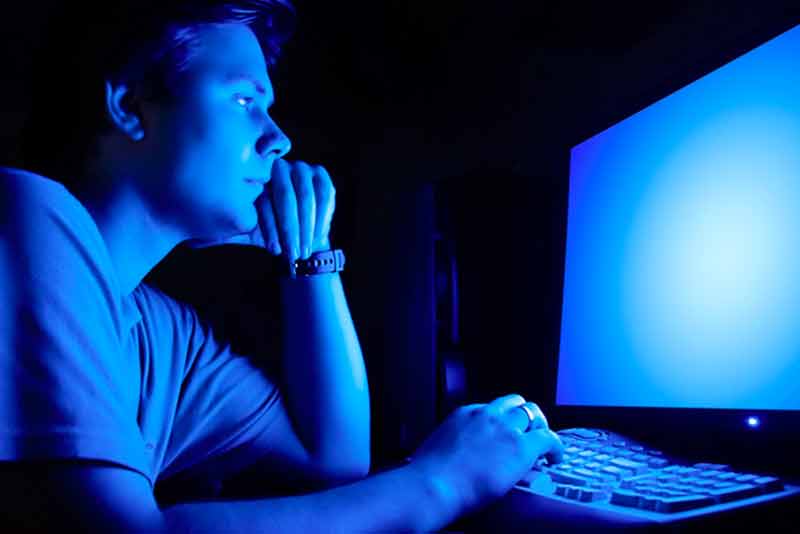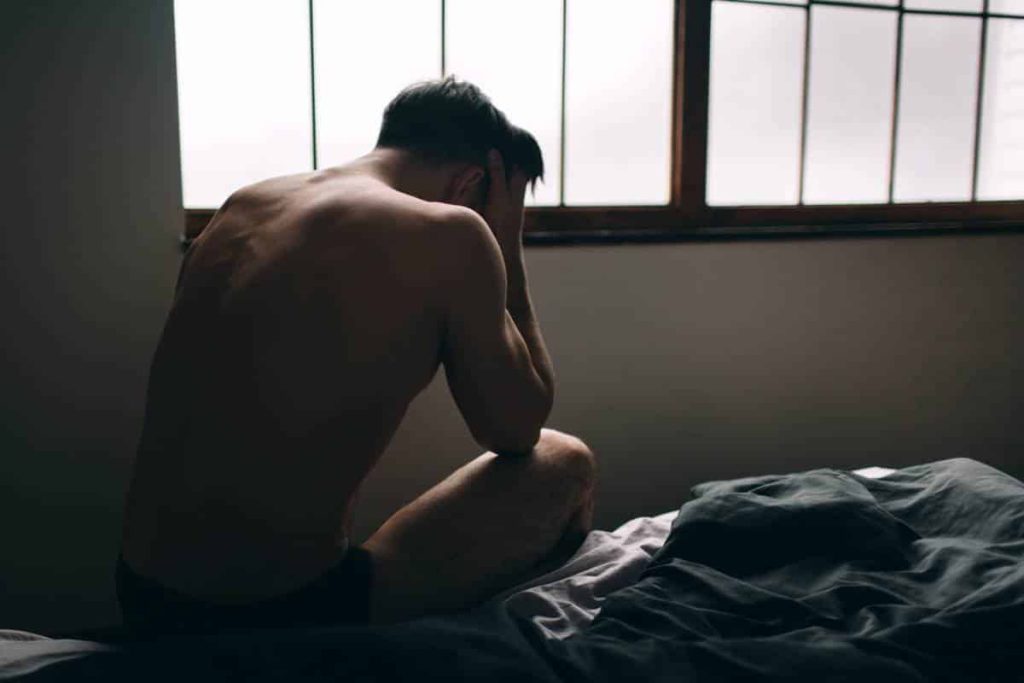When you stare at a screen for hours, be it a computer, TV, phone or tablet, you are exposed to the blue light that emanates from that device. But there is no scientific evidence that blue light from digital devices causes harm to your eyes.
The discomfort some people feel after staring at screens is most likely digital eye strain. Most of us blink less when we stare at screens, which causes eyestrain and dry eyes, says Rahul Khurana, MD, spokesperson for the American Academy of Ophthalmology.
Blue light affects the body’s circadian rhythm, our natural wake and our sleep cycle. During the day, blue light wakes us up and stimulates us. But too much blue light exposure late at night from your phone, tablet, or computer can make it harder to fall asleep.
That’s why Dr. Khurana recommends that you try to limit your screen time in the two to three hours before you go to bed. Many devices have nighttime settings that minimize blue light exposure in the evening.
Although people often associate blue light with computers and phones, the biggest source of blue light is sunlight. Other sources include fluorescent light, compact fluorescent bulbs, and LED lighting. Exposure to blue light from screens is much less than exposure to sunlight. It’s no more harmful than blue sunlight, says Dr. Khurana.
Too much exposure to the sun’s ultraviolet rays increases the risk of eye diseases, including cataracts, eye growth and cancer. We know less about blue light. Its effects are still being researched.
According to Dr. Khurana, taking preventive measures against blue light, even if there is no evidence of harm, could be more harmful than blue light itself. « It’s premature to take preventative action against blue light – there could be unintended consequences, » he says.
Some studies suggest that insufficient sun exposure in children may affect the growth and development of their vision. Lack of sunlight could also increase the risk of nearsightedness (myopia) in teenagers and young adults, according to a recent study.
The best way to protect your eyes from eye strain caused by blue light in devices is to take regular breaks using the « 20-20-20-20 » rule: Every 20 minutes, move your eyes to look at a object at least 20 feet away for at least 20 seconds. You can also use artificial tears to refresh your eyes when they are dry.
Read also: Why should you protect your children from screens?




